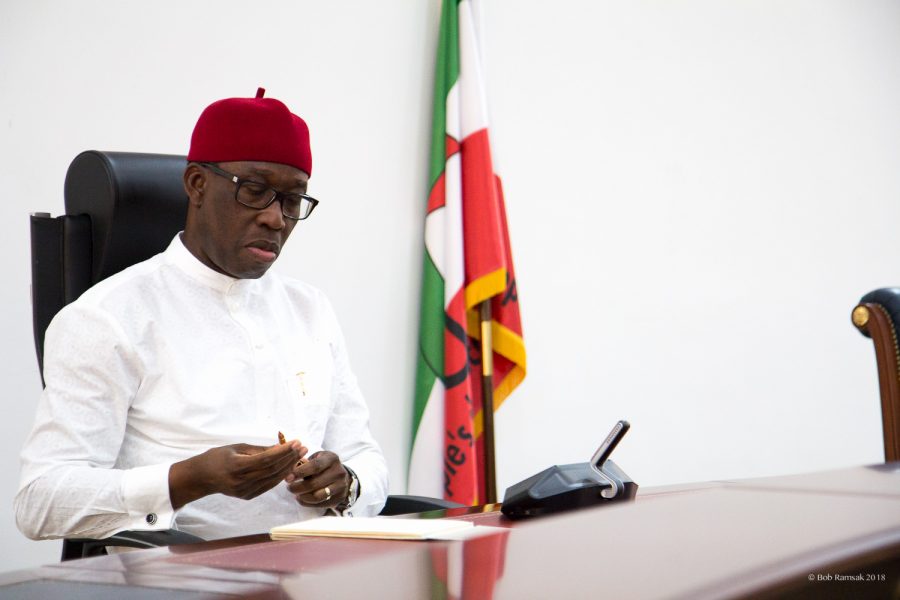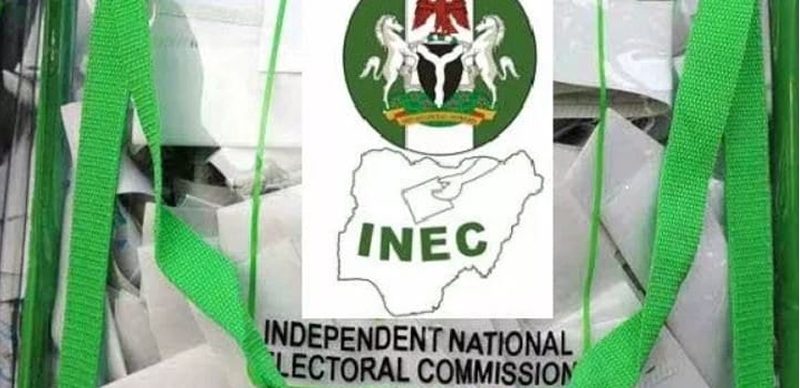Delta government says its request for N150 billion discounting facility will enable it pay for infrastructural projects and outstanding pension arrears.
The state Commissioner for Finance, Chief Fidelis Tilije, made the disclosure while briefing newsmen in Asaba on Wednesday.
Tilije explained that Gov. Ifeanyi Okowa’s administration at inception in 2015, met a debt profile of about N151 billion owed contractors.
According to him, there is another N69 billion due to the Central Bank of Nigeria (NAN) and other bank related outstanding payments.
“But this administration has been able to pay over N85 billion of the debt burden within the period,” the commissioner said.
He said that the bridging financing facility of N150 billion being sought was presented to the state House of Assembly for approval on Tuesday.
According to him, the amount is about 55 per cent of the N257 billion refunds expected from the Federal Government.
”The Federal Government has approved the payment of the sum of N257 billion being recovery from over deductions and double charges from the 13 per cent oil derivation funds refund to the Delta government since 2010 to date,” he said.
Tilije said that since the money was huge, the Federal and oil producing state governments negotiated that the sum be paid in tranches to run over some years.
He noted that as a state government, there was need to take discounting facility that would be tied to a fixed stream of income flow, to enable it execute ongoing and newly approved projects in the state.
He further said that the state government was committed to leaving lasting legacies and that the next administration would have enough funds to lean on.
“The amount that is expected from this recovery is N257 billion for Delta State in one tranche. There is another, which is about N130 billion.
“We believe that what we are even discounting now is reasonable compared to other benefiting states who discounted 100 per cent of the expected amount from the Federal Government.
“We have not taken the facility yet, but when we finally take it, we will tie it to receivables from Federal Accounts Allocation Committee, this is why we say it is discounting and not a loan,” he said.
The commissioner said that this was because the finance facility was tied to a fixed flow of income that was verifiable, dependable and sustainable.
” And because of the pragmatic leadership of the governor, government decides to take N150 billion, about 55 per cent flow of income of N257 billion to ensure that all the legacy projects being carried out in the state are completed and paid for.
“This will ensure that when the next administration comes in, they will have reasonable reserve to lean on and the debt profile will be less,” he said.
Tilije also said that the state’s pension debt was not as huge as N75 billion as alleged in some quarters, adding that it currently stood at about N30 billion.
”The current financial arrangement will bring the pension burden down to about N10 billion.
“The bridging finance facility will also take care of outstanding pension commitments to state and local government pensioners in the Contributory Pension Scheme, amounting to N20 billion and N10 billion respectively.
“The state’s ability to achieve the foregoing is however limited by the fact that the expected total refund will not be received into the state’s account in one lump sum.
“Rather, it will be refunded over a period of five years on quarterly basis with effect from April 2022 to January 2027,” he said.
According to him, the implication is that the state will need to secure a bridging facility in order to achieve the objectives and the facility shall be secured with the quarterly expected inflows.
In his remarks, the Commissioner for Information, Mr Charles Aniagwu, said that given the massive nature of infrastructural projects in the state, it was apt to take the financing facility to hedge against inflation and debt pillage.
He said that most projects were being reviewed in line with current realities in the country.
“The value of money is fast depreciating such that it cost more to execute projects now than what is obtained in 2006.
”So, it is important that government takes this facility to hedge against inflation and to enable it deliver on the massive legacy projects across the state.
“Who knows what the value of money will be in the next two years, so, we took thus decision in the best interest of our people,” Aniagwu added (NAN)






2 Comments